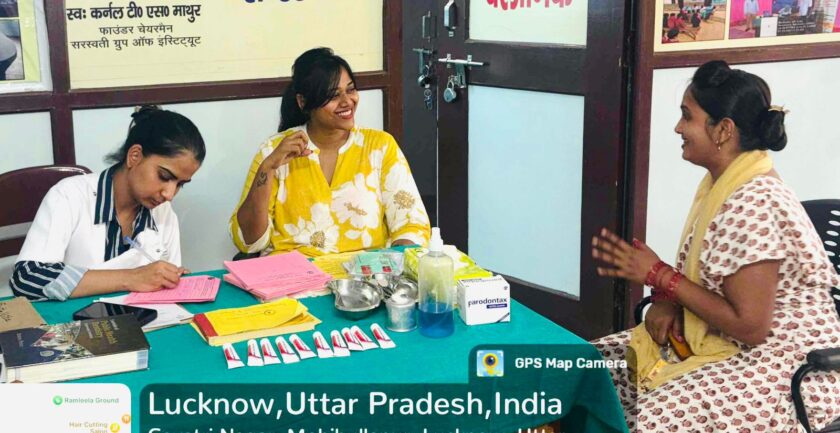LUCKNOW: A research team comprising faculty from Indian Institute of Management Lucknow, Indian Institute of Management Calcutta, and Indian Institute of Technology Delhi, critically explores how management academia’s obsession with rankings contributes to imperialistic aspects of capitalism, particularly in the Global South, and reinforces condemnable scholarly practices.
The essay published in the journal Management Learning as part of the journal’s 55th Anniversary Issue, argues that the pursuit of globally ranked excellence is at the core of contemporary management education, often at the expense of generating knowledge that is significant and pertinent to society. It also highlights how Indian management institutes attempt to create an ‘Indian’ identity internationally while simultaneously seeking global recognition through rankings. This obsession with rankings results in a series of academic challenges, including:
Ø Scarcification of Excellence: Rankings create an artificial scarcity of excellence, focusing only on elite institutions, while ignoring the need for stronger academic infrastructure across thousands of higher education institutes in India.
Ø Rise of Predatory Research & Mimetic Knowledge: The pressure to publish in high-impact journals has led to a proliferation of predatory research practices, along with an increasing tendency for Indian scholars to mimic Western academic frameworks, instead of focusing on pressing contextual issues.
Ø Socio-Political Irrelevance: The pursuit of A/FT50 journals* encourages research that prioritises publication metrics over practical significance, leading to a disconnect between academia and society.
Ø Academic Precarity & Exploitative Business Models: Academic research is built on voluntary labor, with scholars spending unpaid hours writing, reviewing, and editing for corporate publishing houses that make massive profits while faculty members increasingly struggle with job insecurity.
Ø Barriers to Knowledge Access & Dissemination: Paywalls and high open-access fees limit the circulation of knowledge, making it difficult for scholars and universities, especially in the Global South, to access high-quality research.
Speaking about the article, Prof. Priyanshu Gupta, Assistant Professor, Business Sustainability, IIM Lucknow said, “This essay was born out of a troubling pattern that we saw in our everyday conversations among academics – we no longer talk about what we are working on but about the ranked journal where our work is getting published. And we noted that this often detracts the question of whether the work itself is important for our society, to a question of whether it can get published in top journals.”

The article makes the case for a shift in management education, advocating for scholars to challenge rigid academic norms, reject ranking-driven pressures, focus on producing contextually relevant, and impactful research, It encourages the creation of more inclusive and equitable scholarship for knowledge production.
The essay is part of a larger research project examining the impact of rankings in higher education, and is jointly authored by Prof. Priyanshu Gupta, Assistant Professor, IIM Lucknow, Prof. Devi Vijay, Professor, IIM Calcutta, and Prof. Vivek G Nair, Assistant Professor, IIT Delhi. No external funding has been utilised for this research.
Indian Institute of Management Lucknow, established in 1984, is the fourth in the prestigious IIM family of management schools to be established in India after IIM Calcutta, IIM Ahmedabad, and IIM Bangalore. In 2005, IIM Lucknow expanded its area of influence in the realm of management education by becoming the first IIM to set up a satellite campus exclusively for Executive Education at NOIDA in Delhi NCR region.
IIM Lucknow is accredited by AACSB and AMBA while its EQUIS Accreditation is ongoing. The institute features in the prestigious FT -100 Top Global Business schools for both the 2-year Flagship PGP program and One-year IPMX Program. It is also consistently ranked amongst top business schools in the NIRF Rankings. IIM Lucknow was the first IIM to start a 2-year full time MBA program in Sustainable Management 10 years back. It also has a long-standing full-time MBA program in Agri Business Management.
Throughout its last 40 years’ journey IIML has touched millions of lives through its academic programs, executive education programs, research, and consulting. The centres for excellence at IIM Lucknow including the Centre for Public Policy, Centre for Food and Agribusiness Management, Centre for Business Sustainability, Centre for Marketing in Emerging Economies, to name a few, regularly carry out evidence-based research and interventions in public policy and management practice. Faculty of IIM Lucknow also feature in top 2% of global scientists for research output and impact.






